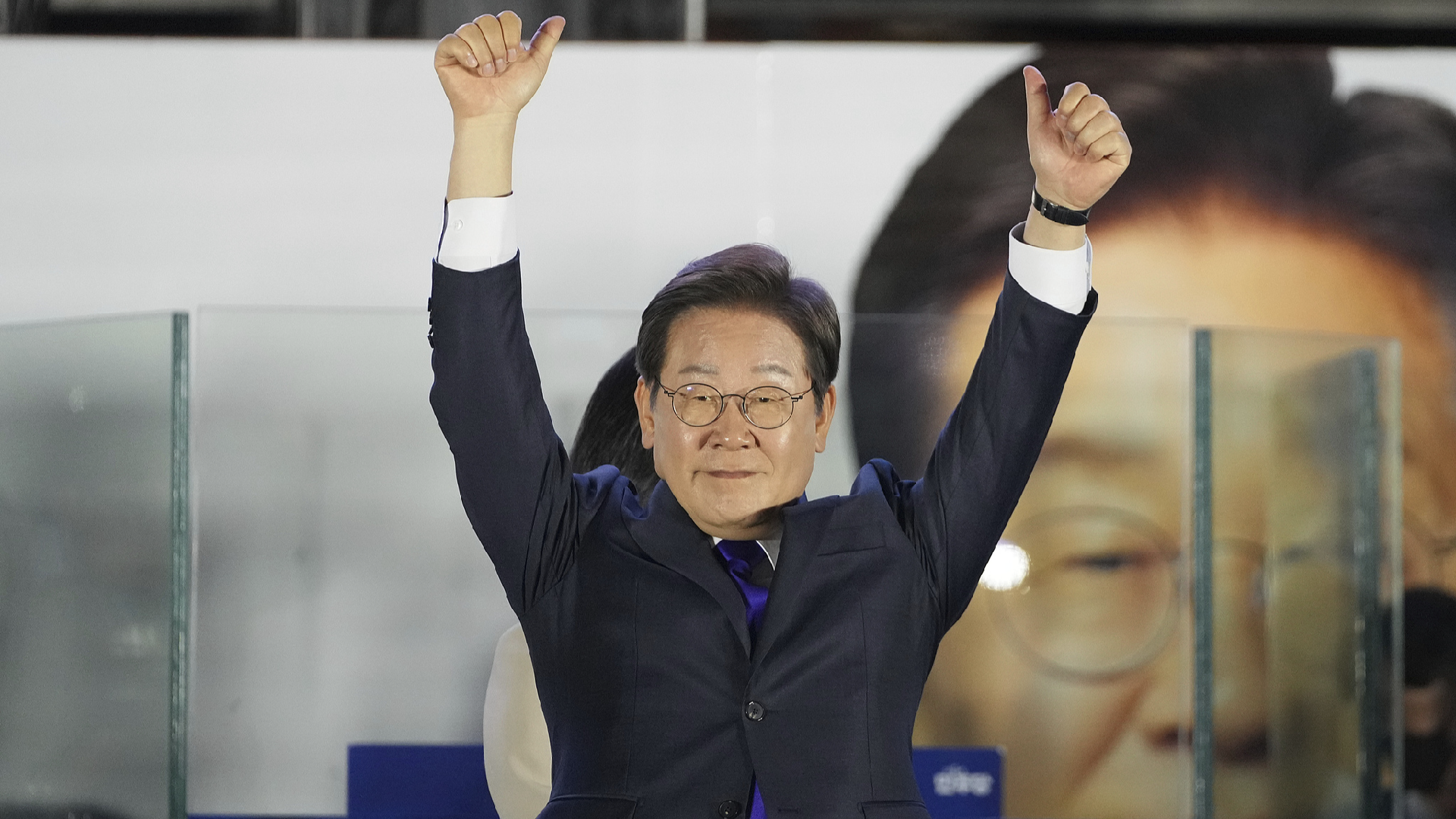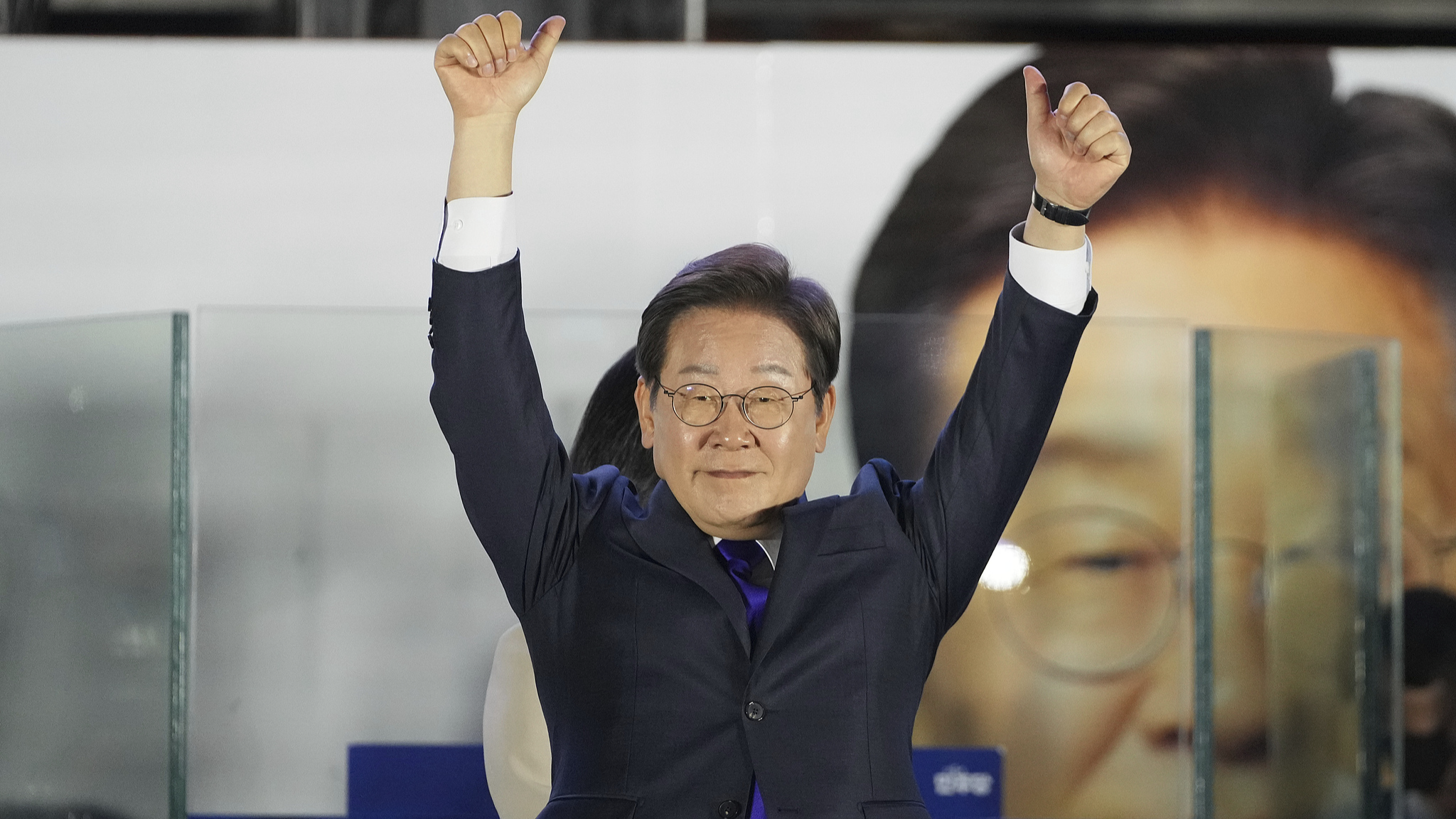Lee Jae-myung: South Korea's New President and Political Leader
South Korea's new president, Lee Jae-myung, emerges as a prominent political figure promising reform and change.


Lee Jae-myung has been elected as South Korea's new president, marking a dramatic reversal of fortunes just three years after his razor-thin defeat in the 2022 election. His return to the national stage comes at a time of profound change and uncertainty for the country, and his victory represents both a personal triumph and a significant shift in South Korean politics.
At 61 years old, Lee's ascent to the presidency crowns a career shaped far from the usual elite circles of South Korean power. Born into poverty, he dropped out of school early to work in factories, supporting his family and suffering a disabling injury while still a teenager. These hardships forged a political identity that connects him closely with working-class voters, and he has built a reputation as a combative populist and relentless advocate for social justice.
Lee’s life took a decisive turn when he earned a scholarship to study law and passed South Korea’s notoriously difficult bar exam. As a lawyer, he championed labor rights and human rights cases, becoming well known for defending the underprivileged—a reputation that would come to define his subsequent political image. Representing the Democratic Party, Lee rose through the ranks with an activist zeal that endeared him to many ordinary South Koreans.
His political career includes two terms as mayor of Seongnam, just south of Seoul, where he garnered national attention for shutting down what was once the country’s largest dog meat market, putting an end to a controversial trade involving tens of thousands of animals each year. Later, as governor of Gyeonggi Province—the country’s most populous region encircling the capital—he further cemented his profile as a progressive reformer.
Despite these achievements, Lee has faced criticism for his often abrasive tone and what opponents call opportunistic populism. He is known for delivering fiery, sometimes polarizing speeches, especially amid national crises or political standoffs. Supporters view this candidness as refreshing, but detractors worry it could deepen political divisions.
Lee’s rise to the presidency comes at a turbulent moment. South Korea was rocked in December 2024 when then-president Yoon Suk-yeol declared martial law in a televised speech, sending shockwaves through the nation. Lee, serving as chairman of the Democratic Party at the time, staged a dramatic resistance by scaling the National Assembly’s perimeter fence to cast his vote against the decree—a moment broadcast live that rallied opposition lawmakers and galvanized public support.
The martial law order was ultimately overturned, and by April 2025, Yoon had been impeached and removed from office by the Constitutional Court. This upheaval catapulted Lee to the forefront as the face of civilian resistance and the defender of democratic norms.
However, Lee’s victory comes while he remains under significant legal scrutiny. He currently faces five criminal trials, including allegations of corruption linked to a real estate development project and violations of election laws. Lee strongly denies any wrongdoing, characterizing the cases as politically motivated attempts to derail his career. In May, the Supreme Court ordered a retrial in one case, but proceedings have been postponed until after the inauguration. Under South Korean law, sitting presidents are shielded from most prosecution, making it unlikely his trials will resume before his term ends in 2030.
Critics argue that such unresolved legal issues should disqualify him from leadership, fueling ongoing debate over the future direction of the country. During heated campaign debates, conservative challenger Kim Moon-soo questioned Lee’s fitness for office given the cloud of allegations hanging over him.
Now inaugurated with a rare parliamentary majority, Lee possesses a particularly strong mandate for action. This parliamentary dominance could enable him to press forward on key campaign promises, but it also raises concerns about potential executive overreach and the possibility of deepening current political fault lines.
Lee has pledged to make massive investments in artificial intelligence and technology, vowing to position South Korea among the world’s top three global players in this growing field. He has also promised to prosecute individuals involved in the attempted imposition of martial law, declaring his intent to “bring insurrection elements to justice.”
Economically, Lee has said that tackling the cost-of-living crisis facing middle- and low-income families, along with addressing the struggles of small business owners, will be his first priorities in office. Observers say his ability to deliver on these promises, while also seeking consensus beyond his traditional progressive base, will determine whether his administration can overcome South Korea’s persistent political divides.
Looking ahead, Lee faces immediate international challenges as well, including a pressing deadline set by the White House regarding negotiations over import duties. How he navigates both domestic and international pressures in these early days will set the tone for his presidency—and for South Korea’s future.




